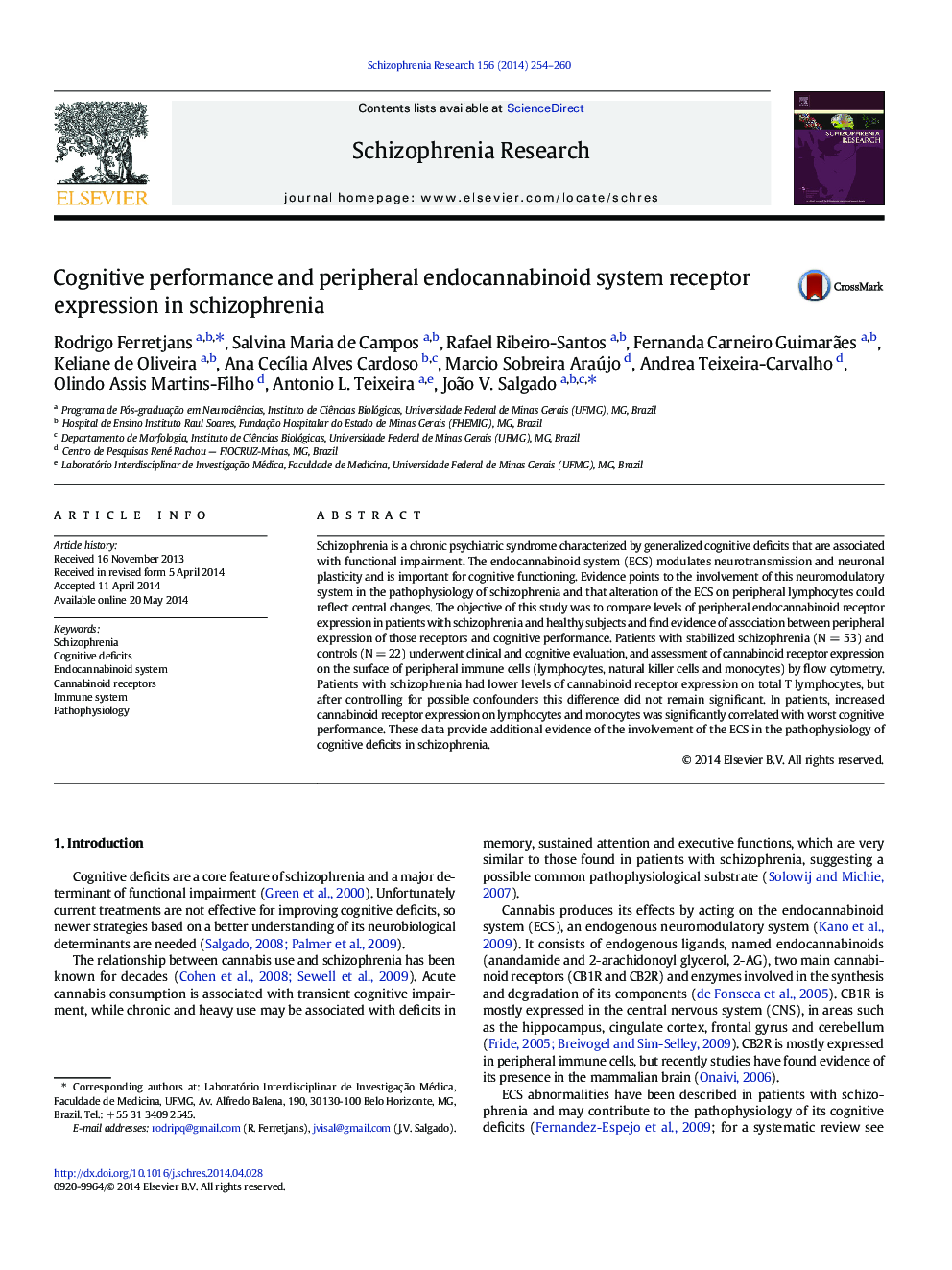| Article ID | Journal | Published Year | Pages | File Type |
|---|---|---|---|---|
| 6825127 | Schizophrenia Research | 2014 | 7 Pages |
Abstract
Schizophrenia is a chronic psychiatric syndrome characterized by generalized cognitive deficits that are associated with functional impairment. The endocannabinoid system (ECS) modulates neurotransmission and neuronal plasticity and is important for cognitive functioning. Evidence points to the involvement of this neuromodulatory system in the pathophysiology of schizophrenia and that alteration of the ECS on peripheral lymphocytes could reflect central changes. The objective of this study was to compare levels of peripheral endocannabinoid receptor expression in patients with schizophrenia and healthy subjects and find evidence of association between peripheral expression of those receptors and cognitive performance. Patients with stabilized schizophrenia (NÂ =Â 53) and controls (NÂ =Â 22) underwent clinical and cognitive evaluation, and assessment of cannabinoid receptor expression on the surface of peripheral immune cells (lymphocytes, natural killer cells and monocytes) by flow cytometry. Patients with schizophrenia had lower levels of cannabinoid receptor expression on total T lymphocytes, but after controlling for possible confounders this difference did not remain significant. In patients, increased cannabinoid receptor expression on lymphocytes and monocytes was significantly correlated with worst cognitive performance. These data provide additional evidence of the involvement of the ECS in the pathophysiology of cognitive deficits in schizophrenia.
Keywords
Related Topics
Life Sciences
Neuroscience
Behavioral Neuroscience
Authors
Rodrigo Ferretjans, Salvina Maria de Campos, Rafael Ribeiro-Santos, Fernanda Carneiro Guimarães, Keliane de Oliveira, Ana CecÃlia Alves Cardoso, Marcio Sobreira Araújo, Andrea Teixeira-Carvalho, Olindo Assis Martins-Filho, Antonio L. Teixeira,
